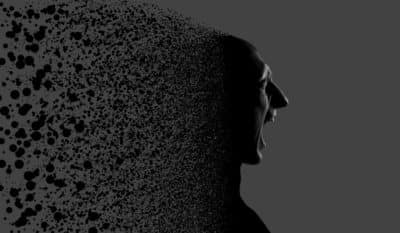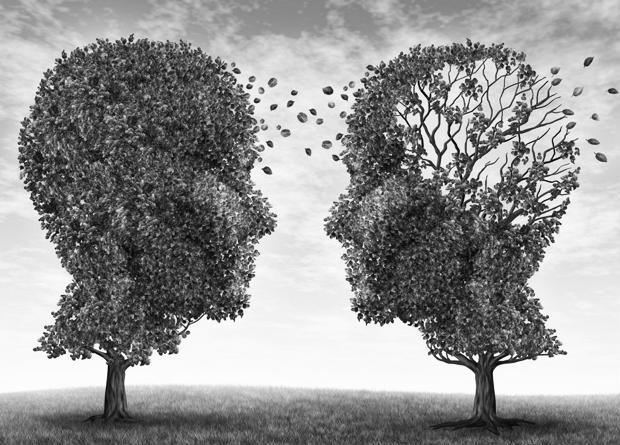Schizophrenia is a chronic and severe mental disorder that affects the way a person thinks, feels and acts. Those with Schizophrenia appear to have lost touch with reality.
Schizophrenia is not a common mental disorder. However, the symptoms are very disabling.
What Are Some Signs and Symptoms of Schizophrenia?
Schizophrenia usually affects those between the ages of 16-30. In extremely rare cases children can have schizophrenia as well.
There are three main categories of schizophrenia. Positive, Negative and Cognitive.
Positive symptoms are psychotic mannerisms not usually seen in healthy people. People often “lose touch” with reality. These symptoms include hallucinations, delusions, thought disorders, and movement disorders.
Negative symptoms are associated with disruptions to normal emotions and behaviors. These symptoms include “flat affect”, reduced feelings of happiness in everyday life, difficulty starting and continuing activities and lack of verbal communication.
Cognitive symptoms are subtle for some patients, and for others, they are far more intense. In these instances, patients have noticed a change in memory or other aspects of the thought process. These symptoms include poor ability to understand information while making decisions, trouble focusing and paying attention, problems with the ability to use information instantly after learning it.
More detailed Symptoms include and not limited to;
Behavioral
- Social isolation
- Disorganized Behavior
- Aggressiveness
- Agitation
- Compulsive Behavior
- Excitability
- Hostility
- Self-harm
- Lack of restraint
Mood
- Anger
- Anxiety
- Feeling detached from self
- Discontent
- Loss of interest in activities
- Inappropriate emotional response
Speech
- Circumstantial speech
- Incoherent speech
- Rambling or stuttering
- Lack of eye contact while speaking
- Rapid or frenzied speaking
Identifying Schizophrenia Denial
One really difficult thing about treating and reducing symptoms of a mental illness such as schizophrenia is acceptance.
Whether that be in one’s self or in a loved one, acknowledging you have a problem and need help is key.
Wanting to maintain a healthy and independent life is required for true success in reducing symptoms!
And choosing to act fast is vital in recovery.
Often, when people who have experienced their first episode they are scared and fear they will be judged, so they fall into a phase of denial.
They make excuses for their outburst or even go to extremes to convince themselves or others that the things they have seen heard or felt were real.
In order to help, a person must want to help themselves first.
What if that seems impossible- because maybe the person is not able to differ between reality and fantasy? Because they seem too far gone?
We’ll tell you how you can help.
What are the risk factors of Schizophrenia?
Some of the several factors of developing schizophrenia are viewed in two main categories; “Genes and Environment” and “Different Brain Chemistry and Structure.”
It has been known by scientists for long that schizophrenia runs in the family. Although, there are many people who suffer from schizophrenia who do not have any family members with the disorder at all!
In fact, most people have one or even more than one family member with schizophrenia who do not actually develop the disorder themselves.
Scientists are not yet able to predict who could develop the disorder using only genetic information. However, scientists claim to believe many different types of genes may increase the risk, yet no single gene causes schizophrenia on its own.
Scientists also have determined that the interactions between environmental aspects and genes are necessary for developing schizophrenia.
Environmental aspects being:
- Any exposure to a virus
- Malnutrition before birth
- Problems during birth
- Psychological factors
Some experts believe that the chemical imbalance of the neurotransmitters may have a role to play in schizophrenia. Dopamine and glutamate specifically.
Also, difficulties in brain development before birth can actually lead to poor connections.
During puberty, the brain goes through some major changes. Changes that might possibly trigger psychotic symptoms in those more vulnerable due to these genetic and brain differences.
What Are Schizophrenia Treatment and Therapy Options?
Unfortunately, the cause of schizophrenia is still unknown. Treatments main focus is on eliminating the symptoms caused by the disease first. Treatments include:
Antipsychotics
Antipsychotics are medications usually taken daily in a pill or liquid form. Some other medication options are injections administered monthly. Some people using medications have experienced some side effects, but these typically went away within a few days.
Doctors can work together with patients to determine which medication is best suited for each person individually, and what doses are appropriate depending on an individual’s severity of schizophrenia and their symptoms.
Psychological Treatments
Once a patient and their doctor have decided on a medication that works well, treatments are offered and more effective. This form of treatment is a form of rehabilitation or therapy.
Although some of the skills seem quite basic, these are crucial turning points for those dealing with schizophrenia.
Treatment includes:
- Learning coping skills for everyday living
- Using coping skills for everyday living
- Assistance with personal life goal achievements
- Assistance with attending school or work
People with schizophrenia who attend these treatments are a lot less likely to have relapsed or become hospitalized.
It allows them to get into a routine of daily habits and refer back to yesterday or the day before as a sort of road map of how to do their everyday living skills.
Coordinated Specialty Care (CSC)
CSC is a recovery-oriented treatment program for those with an early diagnosis of psychosis.
When people with schizophrenia receive intensive help immediately upon their first episode of developing psychosis, research studies have shown that they more commonly have the best long-term outlook.
The goal is to truly connect with the individual who has had a psychotic episode with a team of CSC specialists as soon as possible after the symptoms begin to occur.
The team of specialists works with the person with the disorder to create an effective personalized treatment plan. The team will all make decisions together based on the patient’s needs and their preferences.
This treatment includes:
- Medication
- Psychological therapy sessions
- Consistent case management
- Family involvement
- Employment services
- Educational services
The main objective is to reduce all symptoms improving the overall quality of life for those who have schizophrenia.
There are programs designed to reduce the common possibility of long-term disability for those who have experienced an episode of the disorder, and help them live productive independent lives.
How Can I Help Someone I Know With Schizophrenia?
It can be uneasy knowing how to approach your loved one when they are making obviously false statements or strange ones at that.
It can certainly be challenging facing this disorder in someone you love. A disorder you do not understand.
However, understanding that schizophrenia is a biological illness is very important when handling these circumstances.
Some ways you can help are getting them treatment information and then assisting them in enrolling.
Perhaps try to encourage them to stay in treatment once they’ve committed. It can be frightening to them, so allowing yourself to be helpful, reassuring and supportive, is very important.
Although what they are seeing or feeling is not real, for them it is very very real.
Explaining to them that everyone has the right to see things in their own ways, can show them that you are being respectful, supportive and kind without allowing them to display any inappropriate or dangerous behaviors.
Checking to see what types of support groups are in your local area is another way you can be supportive to your loved ones who suffer from schizophrenia.
Join A Study
Fortunately, there are a variety of different types of clinical trials- which is a fancy way of saying research studies!
These research studies aim to discover new ways to prevent detect and treat schizophrenia.
During clinical trials treatments may vary from but are not limited to, medication.
Whether in pill or liquid form, injections, a new drug or a combination of new drugs. Also surgical procedures or devices, or new ways to use existing treatments.
The objective is to test and determine if a new drug or procedure is safe and effective.
People who might be interested in joining a study may benefit from being a part of a clinical.
Though it is most important to know that the primary purpose is to gain new scientific knowledge about schizophrenia, so that others may be better helped with the disorder in the future.
Please Note: Any and all decisions about applying for a clinical trial and what ones are best suited for a given individual are best made with their doctor or any licensed health professional.
How Do I Find A Study Near Me?
The easiest way to locate clinical trials and lists of all ongoing studies is by visiting ClinicalTrials.Gov. This database is filled with federally and privately supported clinical trials conducted in the united states and around the entire world.
The site will give you information about each trials primary purpose, what a candidate looks like, locations and also contact information to call for further advice and specific details.
This advice should be used in collaboration with a licensed health professional.


